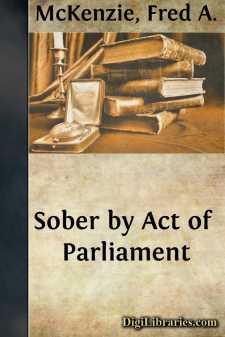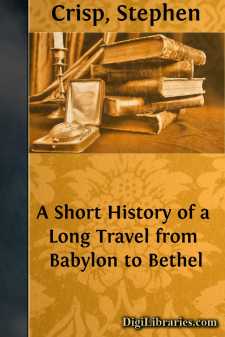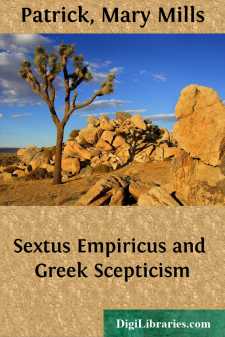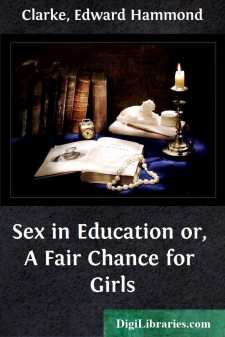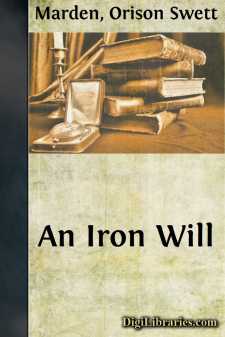Non-Classifiable
- Non-Classifiable 1768
Non-Classifiable Books
Sort by:
by:
Fred A. McKenzie
CHAPTER I. THE STATE AS SALOON KEEPER. During the last few months South Carolina has been the scene of a remarkable experiment in liquor legislation, which has attracted considerable attention from social reformers everywhere. Though professedly based on the Gothenburg system, the Dispensaries Act differs from its prototype in many important respects. As in Sweden, the element of individual profit is...
more...
Preface. The Sleeping Bard was originally written in the Welsh language, and was published about the year 1720. The author of it, Elis Wyn, was a clergyman of the Cambro Anglican Church, and a native of Denbighshire, in which county he passed the greater part of his life, at a place called Y las Ynys. Besides the Sleeping Bard, he wrote and published a book in Welsh, consisting of advice to...
more...
CHAPTER I. Never perhaps in modern times had a country sunk so low as France, when, in the year 1420, the treaty of Troyes was signed. Henry V. of England had made himself master of nearly the whole kingdom; and although the treaty only conferred the title of Regent of France on the English sovereign during the lifetime of the imbecile Charles VI., Henry was assured in the near future of the full...
more...
CHAPTER I. MY BIRTH AND HOME—MY PRETTY COUSIN—ACCIDENT TO THE "KITTYWICH"—JOURNEY TO GUERNSEY—PLEADING TO BECOME A CRUSOE—MY WISH GRANTED—OUTFIT SECURED—SAIL TO JETHOU. That Crusoe of Crusoes, Alexander Selkirk, as I am aware, commences his entertaining history with his birth and parentage, and as I am also a Crusoe, although a very minor adventurer, I may as well follow the...
more...
by:
Alexander Whyte
APPRECIATION AND INTRODUCTION The Religio Medici is a universally recognised English classic. And the Urn-Burial, the Christian Morals, and the Letter to a Friend are all quite worthy to take their stand beside the Religio Medici. Sir Thomas Browne made several other contributions to English literature besides these masterpieces; but it is on the Religio Medici, and on what Sir Thomas himself calls...
more...
by:
Stephen Crisp
INTRODUCTION Writings of the first Quakers, even minor writings, often kindle in us today an ardor to seek what they sought and to find what they found. The excellent book by Luella M. Wright entitled "The Literary Life of the Early Friends, 1650-1725" is a pleasant and convenient introduction to these numerous and often lengthy productions of which 2600 have been listed for the first 75 years....
more...
by:
John Todhunter
SHELLEY AND THE MARRIAGE QUESTION. Now that marriage, like most other time-honoured institutions, has come to stand, a thing accused, at the bar of public opinion, it may be interesting to see what Shelley has to say about it. The marriage problem is a complex one, involving many questions not very easy to answer offhand or even after much consideration. What is marriage? Of divine or human...
more...
CHAPTER I.The Historical Relations of Sextus Empiricus.Interest has revived in the works of Sextus Empiricus in recent times, especially, one may say, since the date of Herbart. There is much in the writings of Sextus that finds a parallel in the methods of modern philosophy. There is a common starting-point in the study of the power and limitations of human thought. There is a common desire to...
more...
SEX IN EDUCATION. PART I. INTRODUCTORY. "Is there any thing better in a State than that both women and men be rendered the very best? There is not."—Plato. It is idle to say that what is right for man is wrong for woman. Pure reason, abstract right and wrong, have nothing to do with sex: they neither recognize nor know it. They teach that what is right or wrong for man is equally right and...
more...
CHAPTER I. TRAINING THE WILL. "The education of the will is the object of our existence," says Emerson. Nor is this putting it too strongly, if we take into account the human will in its relations to the divine. This accords with the saying of J. Stuart Mill, that "a character is a completely fashioned will." In respect to mere mundane relations, the development and discipline of...
more...


